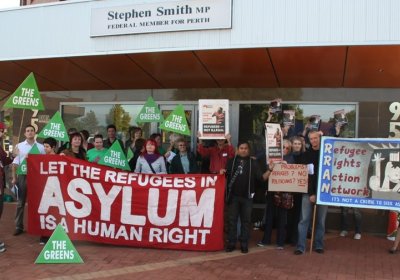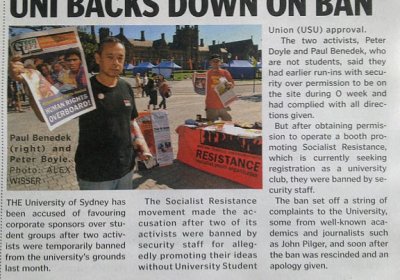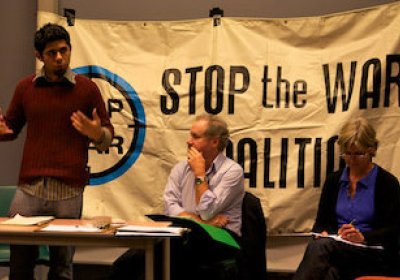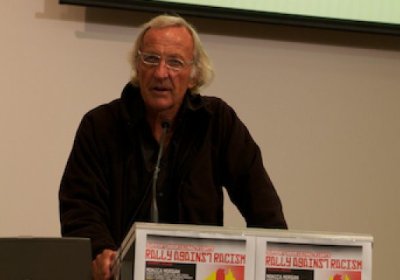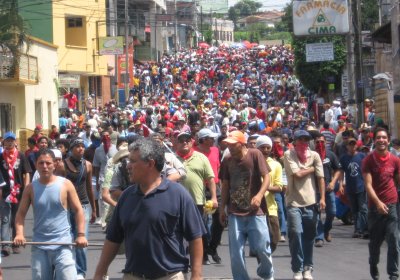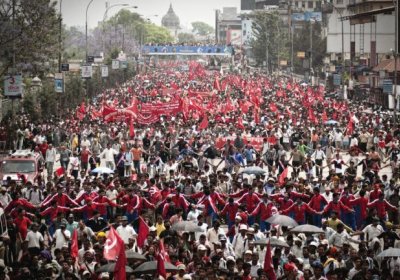Issue 835
News
The March 15 banning of two Socialist Alliance activists, Paul Benedek and myself, from the University of Sydney was revoked on April 9, after vice-chancellor Michael Spence received a storm of protest letters.
The Sydney launch of the Four Days in July national Aboriginal rights convergence was addressed by journalist John Pilger, Alyawarr peoples’ walk-off spokesperson Richard Downs, Maritime Union of Australia Sydney branch secretary Paul McAleer and Larissa Behrendt, Professor of Law and Director of Research at the Jumbunna Indigenous House of Learning at UTS. More than 300 people attended the April 23 meeting.
Analysis
The following is a transcript of a speech by award-winning journalist John Pilger at the Sydney Teachers’ Federation on April 23. It was part of a public launch of the Four Days in July national Aboriginal rights convergence in Alice Springs from July 6 to 9.



